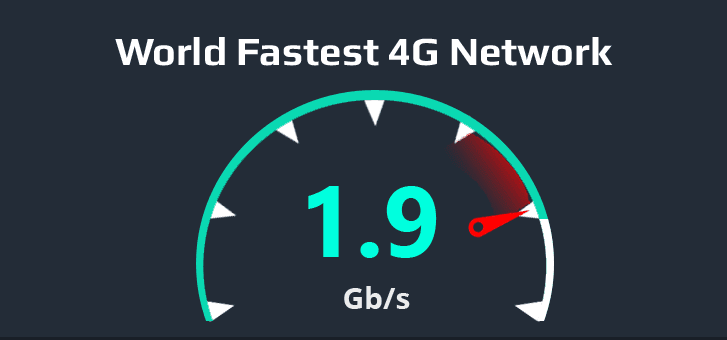Are you looking for a job opportunity in LATAM where you can grow up professionally and have a competitive salary?
Or perhaps want to have a job that gives you the time to travel around the world and work on the way?
Most marketing professionals in LATAM are being paid way under their range. Why is this happening?

Is it some cultural issue? Or perhaps just companies being stingy?
The thing is that some agencies and companies hired professionals for just a small fraction of their real salary range. Don’t get me wrong; I know that sometimes it is tough for business owners to keep a team with highly competitive salaries and get new customers.

Source: tecla.io

Source: tecla.io
That being said, let’s talk this with numbers; in Colombia, a Community Manager has a salary of COP 1,400,000 monthly (sound like a ton of money, right?) But is less than U$ 600. For some, this might be ok, but the actual reality is that most of the time, the CM ends up working also as a digital planner, a copywriter, SEO strategist, barista, you name it.
These tend to be frustrating and tedious; that’s why you’re looking for new options and challenges. But where can you find a job with freedom and a good salary?
Luckily, there’s a light at the end of the tunnel.
This light is called Remote Jobs.
It might sound like the next new thing, but remote jobs are older than you can imagine. But we leave history for another post.
Working remote sounds like fun, but it’s harder than you think, despite the fact of changing your personal space and transform your home in your work environment.
It has some cons that make it hard to adapt to this work style. In LATAM, we are prisoners of routine activities.
This might explain why most companies won’t include a home office policy on their benefits. It’s somewhat hard to understand why they are resisting the jump; it’s some distrust in co-workers? Companies want to keep their environment and structure like in the 1980s? Hard to know.
However, new generations of professionals are breaking the cycle; and that’s a good thing. They do this for economic reasons, opportunities to grow professionally, or being part of a disruptive company that makes things utterly different from the usual office job.
The pursuit of the remote job of your dreams can take months. We bring this to the table, not to lower your expectations. The idea is to try as hard as you can, use tips of this article as an advantage to stand out between the hundred of applicants that apply for a remote job.
Are you ready to get a remote job that’s going to change your life? Do you have what it takes to handle vast amounts of responsibilities with no manager or supervision at all? Are you comfortable transforming the coziness of your house into a highly productive workspace? If your answer is yes, then hold your horse’s pal.

You’re probably super hype up with remote jobs, and it’s cool that you feel this way. Still, you need to know if you have what it takes.
First, how you prepare yourself to get the remote jobs of your dreams? It’s tough. However, these six tips might help out:
Try if working remotely is your thing: If you’re working on an agency or small business, then you can talk it with your boss. Tell ’em that it’s an experiment to improve your productivity. If he accepts, then rehearse all the different processes that are involved in your job
If all things work well for you and the company, then definitely working remotely is for you. Remember to find a perfect spot for your work; avoid distractions and noises, if your house is not the right place, then there’s always a café or a coworking space; just make sure to check these aspects (distractions, noises, internet speed, quality of coffee) before hopping in.
Find a remote job in the right place: There’s plenty of sites where you can check remote jobs. Indeed, it depends on how you’re looking for it. If you want to work global (like working for companies with HQ’s in Australia, New Zealand, Hungary, Canada), then LinkedIn, Remote. Co, Workhoppers, and WeWorkRemotely are good options for you.
If you want to search for something more local, or even regional. Google will do the job. If you live in Peru and you want to work for a Chilean company, the just type “Remote Job Chile” in Google Search Bar and you’ll have good options for you.
Last but not least, there’s always local job portals; in most LATAM countries, there are local websites that often post remote jobs. Probably you won’t see it so regularly, but you can give it a try.
Translate your resume accurately: For the love of God, please don’t use Google Translate, it’s not 100% accurate (trust me, it doesn’t work). You can look up for apps online or list of some verbs and nouns, or even tell a friend that has outstanding grammar skills to help you with this.

If you want to receive a free expert review for your resume click here
Pro Tip: Remember to highlight the important stuff (such as professional background, tech skills, soft skills, interest). What high school did you attend or if you completed Fallout 4 in one night is pointless
Write at least three cover letters: It’s essential to have three different cover letters, so you can see which one is being well-received. The one that has more replies (even though telling you that you don’t get the job) is the most effective.
Cover letters are super crucial for remote job applications. The secret for an impressive cover letter is to be yourself and try to be creative.
Always include information such as your profile, professional background, tech skills, soft skills, why you would be a good fit for the company (be honest and sincere) and talk about one weakness (you’re not perfect, it’s ok to have something wrong.) and last but not least include something casual (your favorite food, your favorite Game of Thrones character or just some fact about yourself.)
Check your internet connection: Most remote jobs require at least 10mb download and upload speed.

You should check your internet service provider website or give them a call to see how much does it cost to increase your internet speed (if you don’t meet the internet speed requirements.). Try to see this as a necessity, not an expense. Your job depends on 99.9% of decent internet speed.
You might be interested in:
Record a one-minute video introducing yourself: You don’t need to have Scorsese’s direction skills. Please keep it simple. Just try to have the lightning and sound decent.
There’s no need to have a GoPro or a Nikon. A smartphone will do the job. Rehearse and try to keep it under a 2-minute length. You want a remote position, not an academy award.
Don’t be nervous. Most HR Associates can smell fear, but chill, they’re not Sauron. Don’t think of them as villains, or try too hard impressing them. Be calm, be consistent, but most importantly, be yourself.
Not a bad idea to write a script and get everything in order before you start rolling. If you feel relaxed in front of cameras, then improvise and do your thing.
Be patient: The selection process is so extensive with remote jobs. It can take too much time. Don’t lose hope, just relax and be confident and keep it up until companies reach out for you. To hunt down a remote job can take from 1 to 8 months, but remember, “Patience is a virtue, and the best things in life are worth waiting for. “
These seven tips won’t guarantee that you get the job but certainly will increase your odds.
A remote job is an excellent experience, its hard work, lots of responsibilities, and adapt yourself to a unique work environment. In the end, all these sacrifices are 100% worth it. Once you are a remote worker, you won’t want to come back to an office job.
You will notice that distance is not an obstacle to do a great job. Even though one of your teammates is based in New Zealand, your boss in Sweden, and you in Nicaragua, if you are organized and find a way to have efficient productivity, things will work fine.



